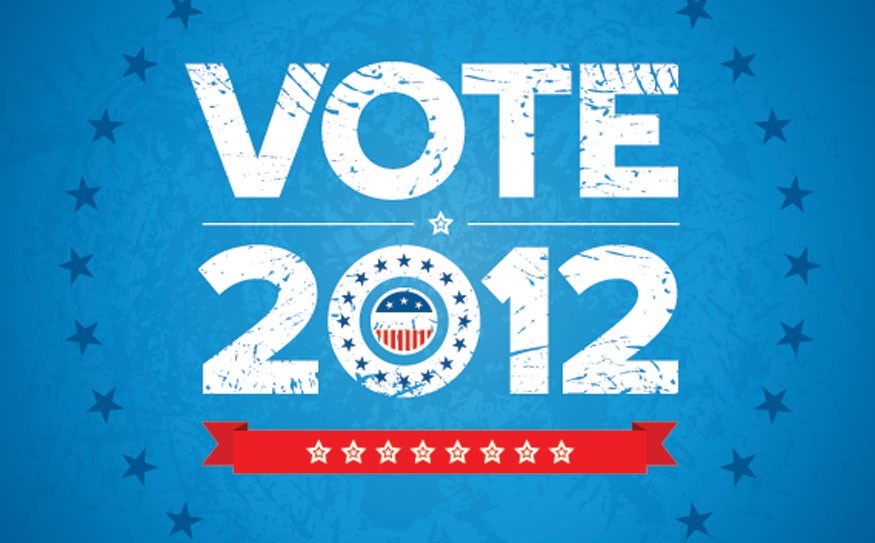On Tuesday Americans go to the polls to choose their president, as well as their congressional leaders, state governments, district attorneys, sheriffs, dog catchers and to vote on various initiatives, referendums and advisory votes. In Washington State these include marijuana reform, marriage equality and maintaining a fee for underground fuel tank safety.
It is, at least potentially, a more complex and demanding civic duty than what is periodically asked of Canadians. And while Americans decide who will govern them, their choice affects all the rest of us. And so it is that Tuesday's elections will be watched by the world.
The stakes in U.S. elections seem to increase every four years. That has to do with world affairs and America's role in the world, but also with matters internal to the United States. In the last four years the internal context has grown to include the first black president in the country's history and, simultaneously, the rise of the Tea Party movement.
It's been four years of high unemployment, dismal economic growth and ballooning deficits. The period was immediately preceded by a near-collapse of the banking system, a burst housing bubble and years of growing debts — among both governments and individuals — during a time of easy money. Given this sudden, drastic downturn in the economy and in individuals' wealth, and the stubbornness with which it persists, it's perhaps not surprising that Americans are so divided today.
There are issues in this U.S. election that, to much of the rest of the world, are mysteries: the movement toward universal health care (or, specifically, why it isn't already in place), gay marriage and, in some states, who gets to vote. And there are partisan interpretations of facts that defy logic. For instance, the 2009 bailout of Chrysler and General Motors, both of which are now profitable, is seen by some as a negative. Likewise, the Recovery Act, which poured more than $800 billion into stimulus spending on infrastructure, tax cuts and incentives and is estimated to have saved two to three million jobs. It was one of the largest government expenditures in history. But as the Globe and Mail's Doug Saunders wrote last week, the Recovery Act isn't mentioned very often by President Barack Obama in his re-election campaign. "The word 'stimulus' has become poison. Americans associate it with public debt, an economy that failed to start growing and a string of embarrassing failures of the sort that only government money can deliver."
The role of government in people's lives is at the heart of much of the division in America. It is a theme that Americans seem never to tire of. Austerity vs. stimulus. Entitlement vs. pulling yourself up by your boot straps. It may have reached its zenith in the Supreme Court's 2010 "Citizens United" decision, which lifted restrictions on political spending by individuals or firms. The ruling has given rise to Super PACs, privately funded organizations set up to influence election outcomes. They now control hundreds of millions of dollars.
They also reflect the growing inequality in America. One estimate is that 80 per cent of the money controlled by Super PACs comes from fewer than 200 donors.
As The Economist noted recently, "A disproportionate, and growing, chunk of the very rich... have made their money in Wall Street rather than Main Street... America's top 25 hedge-fund managers make more than all the CEOs of the S&P 500 combined."
The counter to this was the Occupy movement, which began last year on Wall Street. Occupy seems to have fizzled out but the disparity remains.
America has throughout its history been a tremendous success and success stories are, naturally, what Americans want to hear. The United States has, in part, been built on the notion of its "exceptionalism." But as the Scott Shane wrote recently, it's difficult for a politician to speak with blunt honesty about America's problems.
"How far would this truth-telling candidate get? Nowhere fast. Such a candidate is, in fact, all but unimaginable in our political culture. Of their serious presidential candidates, and even of their presidents, Americans demand constant reassurance that their country, their achievements and their values are extraordinary."
It's difficult to see the divisions in America narrowing much after next week's elections. Perhaps the best that can be hoped for is a stronger sense of direction grows from Tuesday's results. That would be a welcome change, not just for America but for the rest of the world.
Because how the United States goes impacts us all.




